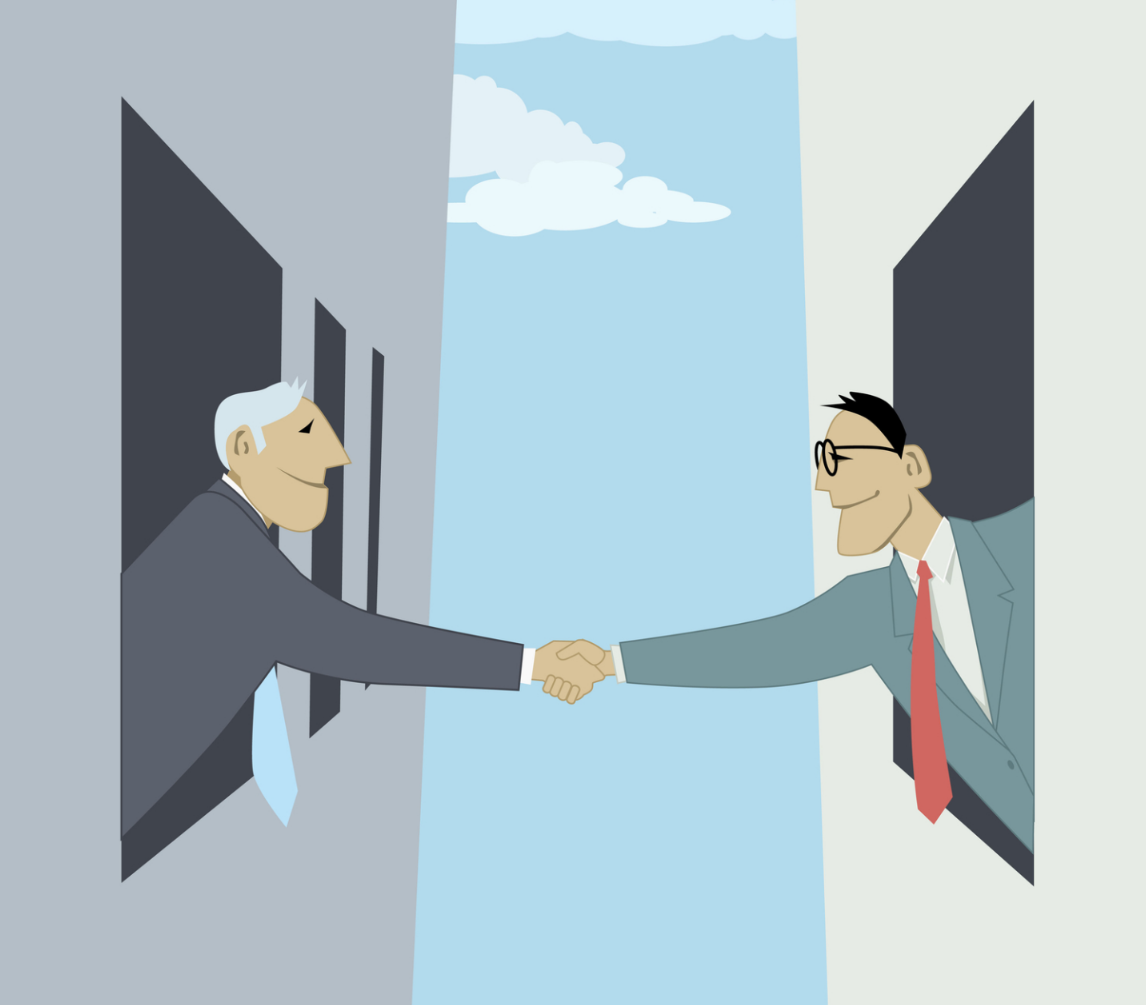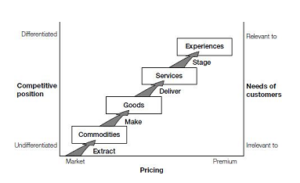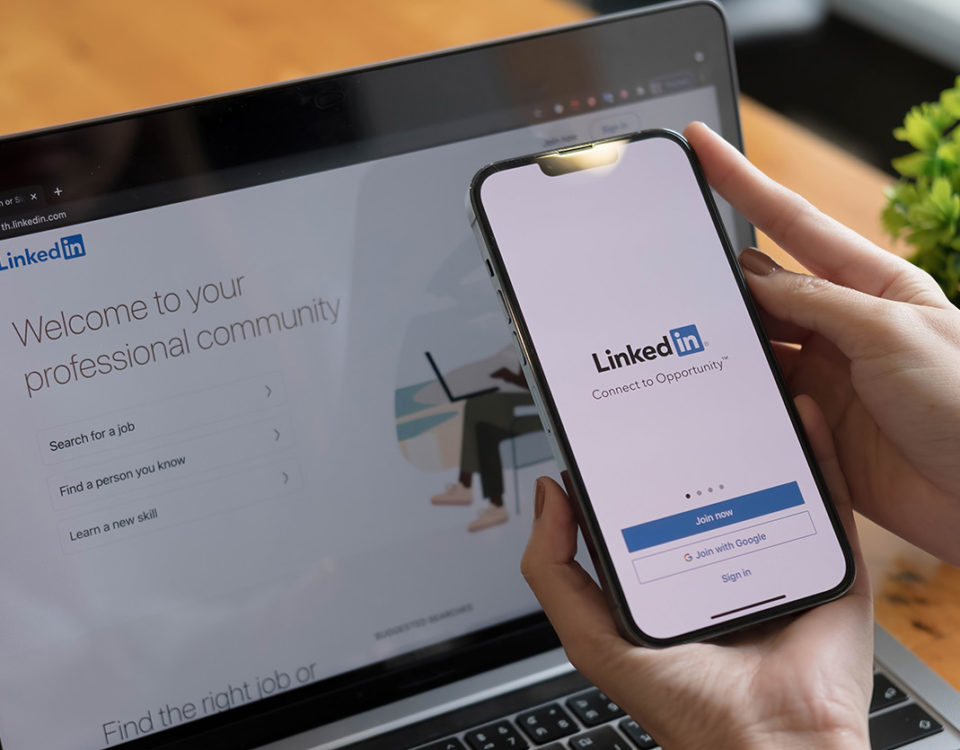
Leverage the Five Key Global Economic Trends in 2017 to Drive Cloud Adoption
May 18, 2017
Here are some reasons why you may not be getting more leads on your website, and what to change to generate more.
June 2, 2017Why You Need to Transition to the Experience Economy (and How to do it)
For the past 30 years we have been differentiating technology products based on their unique features and functionality. Buyers issued a request for proposal and chose the solution which best met their list of feature requirements. Today, however, CRM, ERP and other technology products are becoming commodities. They all offer the same basic functionality. The cloud business solution market brings with it new opportunity but also increased global competition. In our previous blog “Differentiation: Standing Out in the Cloud”, we asked sellers (like you) and buyers (your prospects) the same question “how are technology providers differentiating themselves”? Sellers pointed to features such as excellent technology and solutions, strong company reputation, years in business, affordable price and knowledgeable technical staff as their primary differentiators. But when every provider is stating the same 3 reasons why a buyer should choose them over a competitor, these features are no longer competitive differentiators, but the bare minimum barriers to entry in this market. Having a strong technical team, years of expertise and experience and happy, referenceable customers in addition to a strong product are the basic requirements to play. Buyers are looking for something totally different. They want to know that you understand their industry and their unique needs. They don’t want to pay you to learn about their business. If they are going to commit to you, they want you to add value to their business over and above offering a reliable product and good services. In other words, your prospects are looking for an “experience” rather than a commoditized product or service.
What is the Experience Economy?
In “Welcome to the Experience Economy” Joseph Pine and James Gilmore outline the progression of economic value from the start of the industrial era to modern day. To generate revenue growth, businesses across all industries are transitioning from the services economy to the experiences economy. It is well established that customers’ preferences are changing from material goods and commoditized services to individualized experiences. To avoid becoming commoditized, more and more companies are responding by wrapping experiences around their traditional product and service offerings.
Source: The Experience Economy
The consumer industry has figured out the need to differentiate products with experience a long time ago. But we, in the business to business technology sector, are far behind. The difference between the service and experience economy might be unclear since both economies provide intangible products so here are some examples:
Service: You go into a barbershop and get your haircut just the way you want it.
Experience: You go into the barbershop, get your haircut just the way you want it. But, you also get a massage and your barber offers you tea and small sandwiches. The theme of the salon is Afternoon Tea.
Service: You go into a Nike store and you buy a pair of basketball shoes with the help of a sales associate.
Experience: You go into Niketown and meet with a Nike+ Expert. He gives you advice on product recommendations and personal styling after a one-on-one conversation. Even better, you get to try the shoes before you buy them on a basketball court.
As shown in the examples, the difference between a service and an experience is that an experience takes a commoditized service and turns it into something meaningful, relevant, value adding and memorable. Pine and Gilmore describe an experience as “when a company intentionally uses services as the stage, and goods as props, to engage individual customers in a way that creates a memorable event”. In the Nike example, the store and basketball court were used as the stage and the shoes were the prop. The experience was the one-on-one personal styling and shoe demo on the basketball court.
Cloud tech companies are at the forefront of this transition to the experience economy. It’s not too late to gain a first mover advantage in the cloud industry, as most service providers are still stuck in the service economy. Of course, gaining first movers advantage is time sensitive so you will need to make the transition now.
How do you transition to the experience economy?
So how can you create an unprecedented customer experience? As a cloud solution provider, you’ll need to go deeply vertical. CRM and ERP are becoming commoditized and all partner technology implementation services are virtually the same or easily substituted. You need to stop offering horizontal products aimed at everyone and anyone (well, not if you want to maintain margins and not have to compete on price or have a high annual churn rate). Instead, you need to focus on three core industries so you’re able to teach your prospects about their own business. Invest in becoming an expert in each of these industries and learn everything you can about their business needs, problems and all the ways to solve them. You need to be able to not just offer good technology and skilled technical expertise, but to be a strategic partner in helping your clients gain a competitive advantage in their industry. When you solve the same types of problems for dozens of similar companies all in the same industry, YOU become the expert. You can teach your customers things about themselves that they didn’t know. You can earn the position of strategic, valued services advisor. Only then will your customers trust you enough to hand over their most valued core business data and put themselves in the vulnerable position of being dependent on you.
In our blog “Differentiation: Standing Out in the Cloud”, we mentioned five external industry drivers that play a key role in your prospects’ businesses (The economy, regulatory changes, suppliers, competitors and customers). It is impossible to respond and adapt your solution to all these industry drivers if you’re servicing too many customers in different industries. You do not have the marketing, development or sales resources to be relevant to clients before and after the buying cycle if you are learning about the needs of a new industry every day. You need to acquire deep industry domain expertise to truly wow your customer. You might have technology expertise in six or more industries but, in the experience economy, it is critical to have business model and industry specific expertise in addition to technology competence. Gaining this level of expertise in more than 3 verticals will require a significant increase in investment in marketing resources and require you to hire from within your customers’ industries. By the way, you also need to elevate your solutions from a technology initiative or project to an executive level strategic business decision, but we will have that conversation another day.
Compared to commoditized services, experiences are inherently personal and, therefore, engage with the emotional parts of our brains. Each interaction you have with your customers should be customized and should teach them something new. As a result, your customers will have distinct emotional memories associated with you and your product (similar to a child having fond memories of Disneyland because that’s where she took a picture with Tinker Bell or the reason you remember where you ate dinner on your wedding night). In this way, you appeal to the logical brain (by providing a service) and emotional brain (by providing an experience). What do you get in return? Your customers will become your brand advocates and boast about you at their industry conferences, trade shows and events. Can you hear your prospects leaving your competitors?
References
Pine, J. B. & Gilmore, J. H. (1998). Welcome to the Experience Economy. Harvard Business Review. Retrieved from https://hbr.org/1998/07/welcome-to-the-experience-economy
Image from:
www.depositphotos.com




